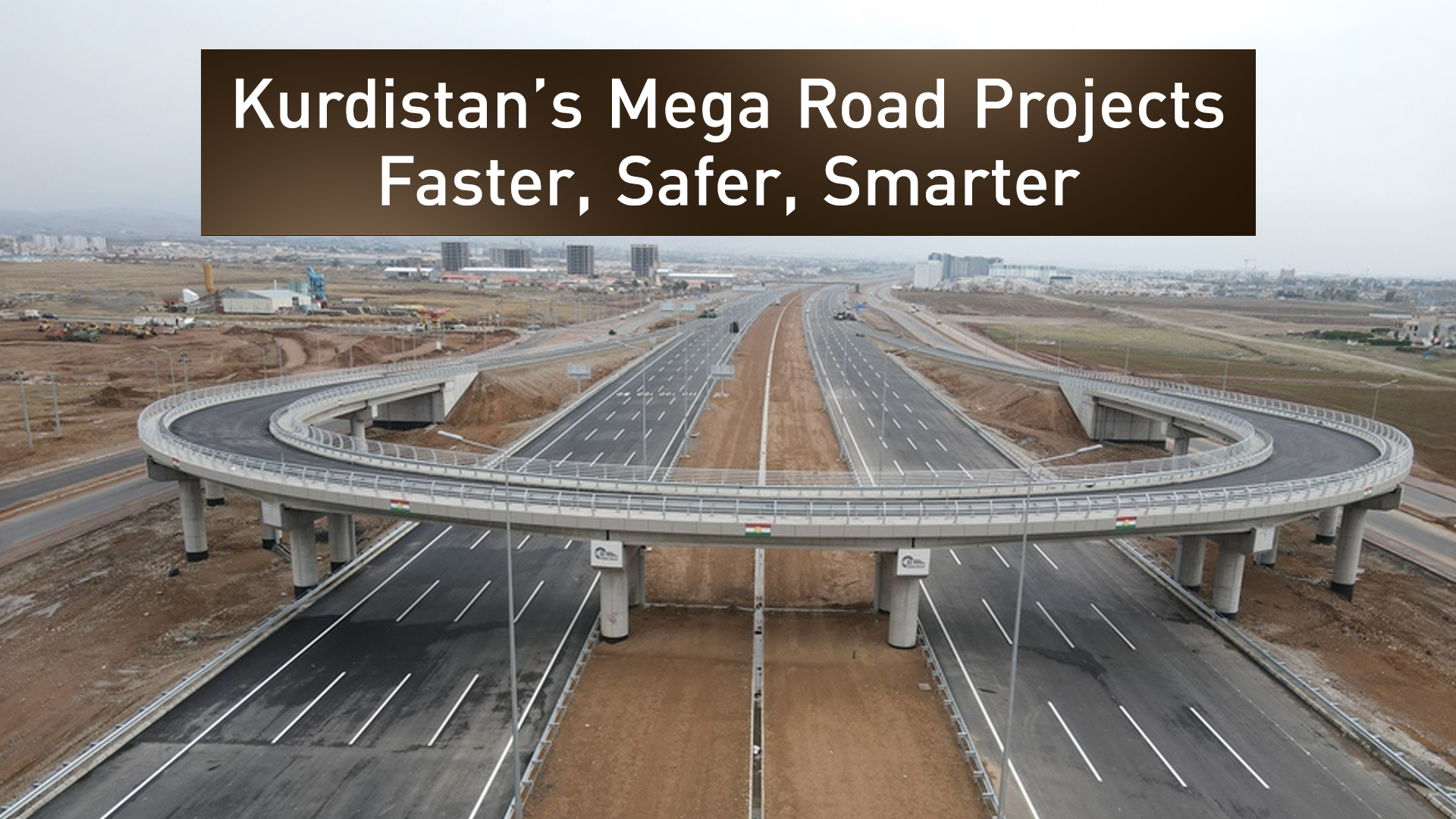Kurdistan Region’s Ninth Cabinet Ushers in Historic Transformation in Road Infrastructure
The KRG’s ninth cabinet has transformed Kurdistan’s roads, completing 2,681+ km of new highways like Erbil-Koya & Sulaymaniyah ring roads. This boosts connectivity, the economy & safety, paving the way for a more prosperous future.

By Ahora Qadi
ERBIL (Kurdistan24) – Under the leadership of Prime Minister Masrour Barzani, the ninth cabinet of the Kurdistan Regional Government (KRG) has spearheaded a transformative era for the Region’s road infrastructure, completing over 2,681 kilometers of new roads and upgrading existing routes across all provinces and administrations. This unprecedented leap in development, achieved despite financial hardships, underscores the government's strategic vision to modernize Kurdistan’s transportation network and reinforce its economic resilience.
A Strategic Priority in the Face of Economic Challenges
From its inception, the ninth cabinet prioritized infrastructure as a cornerstone for revitalizing trade, agriculture, industry, and tourism sectors. This focus translated into more than 700 road projects completed so far, deploying over 12 million square meters of asphalt throughout the Region.
The KRG implemented these projects through three key financing sources: public investment, the general budget, and 30% of revenues generated from vehicle weight stations.
Major Projects Reshaping Urban and Rural Connectivity
Among the most prominent achievements are:
- The 150-meter Ring Road (Erbil–Koya axis), one of the most ambitious projects, constructed at a cost of 582.1 billion IQD.
- The 120-meter Ring Road in Duhok, a vital urban artery, completed at a cost of 127 billion IQD.
- The 150-meter Ring Road from Bahirka to Duhok, built at a cost of 197.7 billion IQD.
- The Duhok–Jazna Link Road, which connects to the 120-meter road, implemented at 9 billion IQD.
- Barzan Road Overpasses and Underpasses, a two-phase project extending over 6,000 meters:
- The 100-meter Ring Road in Sulaymaniyah, constructed at a cost of 428.5 billion IQD, now serves as a key transport corridor.
In addition, the strategic Bermam Tunnel and two major bridges — Zey Gawra (Gobal Bridge) and Darbandi Raniya Bridge — have been completed. Zey Gawra Bridge stretches 1,000 meters, linking Erbil and Duhok at a cost of 59 billion IQD, while Darbandi Raniya spans 420 meters, built for 11.4 billion IQD.
Expanding Services and Safety
Over the last two years alone, the Ministry of Interior and security forces have laid 883 kilometers of internal road networks, significantly enhancing both urban and rural mobility. The government also installed over 16,213 road guidance and traffic signs to improve navigation and public safety.
Furthermore, 45 kilometers of city and highway roads were paved with asphalt to address immediate transport needs in densely populated areas.
Forward Momentum for Development
Despite fiscal constraints, the ninth cabinet has demonstrated an unwavering commitment to modernizing Kurdistan’s road infrastructure. The initiatives have not only revitalized inter-provincial connectivity but have also paved the way for safer travel, reduced road accidents, and opened new economic corridors to villages and underserved regions.
As these efforts continue, the Region is witnessing a qualitative leap in its infrastructure development, laying the groundwork for a more prosperous, connected, and stable Kurdistan.